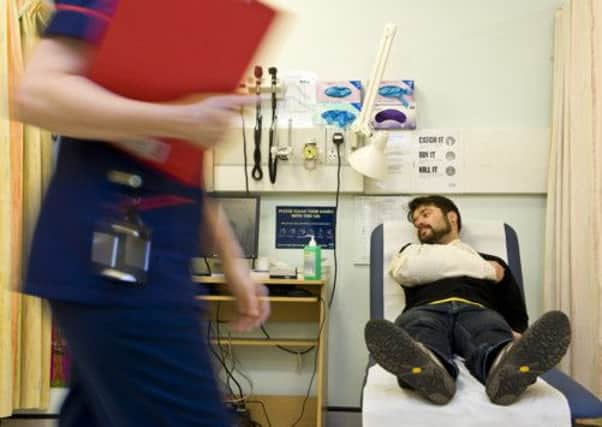Women may have been treated by hepatitis C worker


NHS Fife said the retired member of staff, who worked in the board’s obstetrics and gynaecological departments for a short period from March to July 1981, had been identified as suffering from the blood-borne infection.
They are now conducting a “look back” exercise to review patient records and identify individuals who could potentially have been exposed to the virus.
Advertisement
Hide AdAdvertisement
Hide AdHowever, the board said the risk of transmission of hepatitis C from healthcare workers to a patient was rare and the risk of infection very small.
The worker concerned also worked in hospitals across England, Wales and Northern Ireland where similar investigations are being carried out.
Dr Edward Coyle, NHS Fife’s director of public health, said: “We are reviewing patients’ information for the timeframe, however, given that this occurred in Fife over 30 years ago it is proving challenging to source detailed patient records, particularly as names and addresses may have changed.
“An extensive verification exercise is ongoing. Patients identified as having a risk of exposure will be written to and offered further advice and hepatitis C screening.
“It is important to note that the risk remains small and screening is offered as a precautionary measure.”
NHS Fife said that women who were concerned that they might have been exposed to the infection could phone a confidential helpline on 08000 858531, open from 8am to 8pm, to access information and advice.
Where necessary, the phoneline staff will arrange an appointment for counselling and a blood test.
Dr Coyle added: “It is important that patients who could potentially have been exposed to the virus are identified so that we can offer them testing.
Advertisement
Hide AdAdvertisement
Hide Ad“Hepatitis C is not uncommon – as many as 1 in 250 people carry the infection in the UK - and it does not automatically lead to health problems.“
Hepatitis C is a virus which can lead to inflammation of the liver.
While in most cases infected people will suffer no noticeable symptoms, in others it can cause sickness, abdominal pain and jaundice. It can also cause chronic liver disease.
Some infected patients become carriers of the hepatitis C virus, increasing their risk of liver disease. This makes it vital that anyone at risk of infection is tested.
The virus is mainly transmitted through blood-to-blood contact, and more rarely through sexual intercourse. It cannot be spread through social contact, kissing or sharing food and drink. In the UK, intravenous drug use is the commonest risk for infection with hepatitis C.